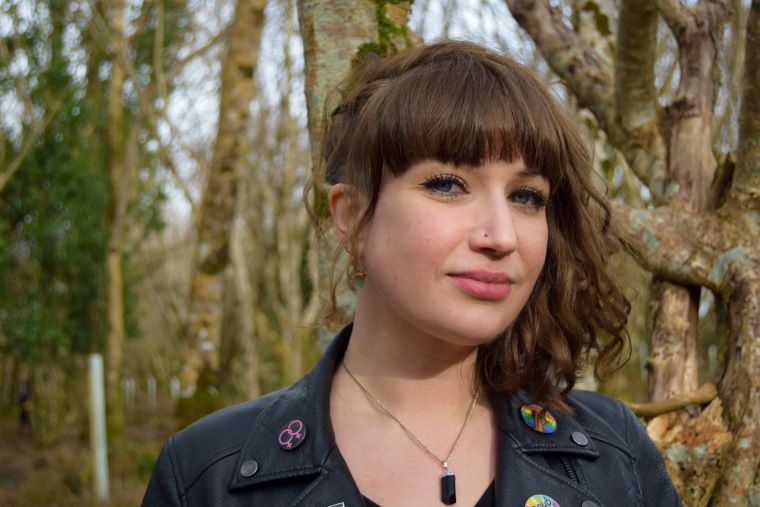
Award-winning author Moira Fowley was born to an Irish father and a French mother. In her childhood, she split her time between Dublin, Paris, and the south-west of France.
Looking back at her formative years, she cannot recall a time when she didn’t write.
“I have kept diaries since I could write full sentences, and I have been telling stories my whole life,” Fowley tells Celtic Life International via email. “Writing has always been a compulsion more than a decision: both an outlet for inescapable daydreams and sometimes the only way for me – a gluttonous yet picky reader – to find the particular stories I crave.”
She describes her journey to becoming a professional writer as a “vague eventuality” – one that didn’t come with an inherent blueprint or map.
Fowley published her first book, The Accident Season, in 2011 and knew immediately that literature was the only path for her.
“I can’t not write – it is bone-deep in my body. It’s not physically possible; writing things down is how I remember, how I tell myself the story of my life and the stories in my head. It is the only way I can think, sometimes. I am still always chasing each morsel of perfect story to add to my reading banquet.”
The Accident Season was shortlisted for both the Waterstones Children’s Book Prize and the North East Teen Book Awards. It was also nominated for the Carnegie Medal (Britain) and won the School Library Association of Ireland Great Reads Award.
Following the success of her debut, the scribe released two more novels – Spellbook of Lost and Found (2017), and Some Bad Apples (2019) – both of which were shortlisted for the Irish Book Awards.
All three novels are marketed to young adult audiences, and contain elements of magic and magical realism, mystery, witches, and LGBTQIA+ themes. Although the books’ subjects are similar, Fowley explains that the stories and the writing styles are not.
“With each book my writing shifts, and with each book I challenge myself to swim further out past the boundaries of my comfort zone and allow myself to be more.”

Fowley notes that her latest effort, EYES GUTS THROAT BONES – her first short story collection (and her first book for adult readers) – is a totally different body of water. And though it echoes the core themes of her previous works, it does so in a darker and more mature way.
“This is an ocean I will happily drown in.”
Interestingly, she notes that EYES GUTS THROAT BONES isn’t the book she set out to write.
“When Ireland went into lockdown in March of 2020, I was supposed to be writing the first draft of my fourth YA novel, but between home-schooling my children and navigating the end of the world, I couldn’t make it work. So, one morning I abandoned my laptop and walked into the forest with a notebook and the first story of this collection came bleeding out. After the first story came another, and another, until I had to face the fact that, without planning it or even properly realizing it, I had begun writing a collection of short stories. I sat in the forest, and I listened to my body. I asked myself: ‘Where do you feel it?’ The answer became the title. Eyes. Guts. Throat. Bones.
“Throughout the process, I learned to write a story as a mirror, like those pressed-paint butterflies children make by folding paper. I learned to be entirely consumed by a story, and then to let it go. I learned to listen to my body, to lean into my wildness all the way, and to get my hands dirty. What a feast, finishing a book. What a surprise, every damn time.”
She says the response from early readers has been “beautiful.”
“These are horrible love stories, queer and gory and intense: they won’t be for everyone. But those they are for seem to love them.”
Fowley is currently working on her next project, her debut adult novel. She explains that the work is thematically similar to EYES GUTS THROAT BONES and is primarily focused on the body, monstrous femininity, queer desire, and appetite.
“There is something indescribably powerful about making a book out of nothing but your mind and body. I am taken aback every time it happens, as if the book has written me rather than the other way around.”




















Leave a Comment